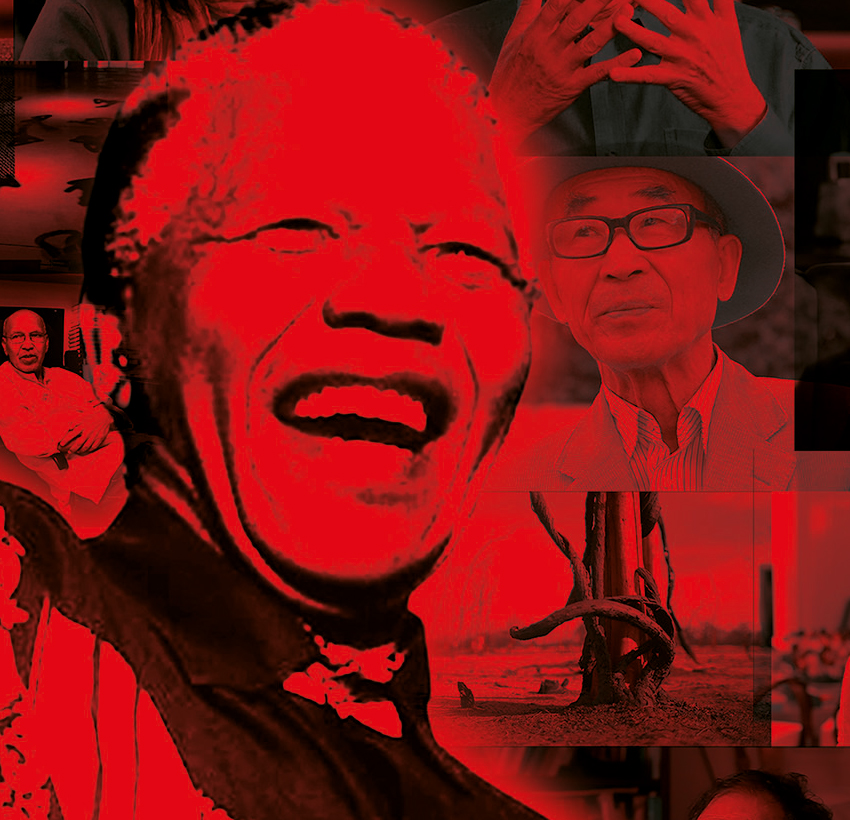South Africa in the West

"People talk about the price of war but not the price of peace—and black people are paying."—Khalo Matabane
South Africa recently marked the twentieth anniversary of its first democratic elections and the momentous passage of one of the great leaders who made this political transition possible, Nelson Mandela. While the post-apartheid era is often thought of in glowing terms outside South Africa, the current situation within the country provides ample evidence that the legacies of state-sanctioned violence, economic inequality, and institutional racism are still very much alive. Clearly we can say the same for the United States, as recent events make abundantly evident.
Nelson Mandela’s message of freedom, forgiveness, and reconciliation still inspires people worldwide. Yet for South African filmmaker Khalo Matabane, Mandela’s legacy is far more ambivalent. As someone who came to adulthood after independence, Matabane sees a contemporary South Africa that is still profoundly divided and unequal. “Tata Mandela, we are one of the most unequal societies in the world. People are impatient they can’t wait any longer,” says Matabane in his documentary A Letter to Nelson Mandela, a film that will be shown at the Pacific Film Archive in March as a part of a semester-long series events entitled “South African in the West.”
A collaboration between the Center for African Studies, the Townsend Center, Cal Performances, and the Berkeley Art Museum & Pacific Film Archive with generous sponsorship from the Office of the Chancellor, “South Africa in the West” includes, in addition to Matabane’s film, a musical concert by Hugh Masekela and Vusi Mahlasela presented by Cal Performances commemorating 20 years of South Africa’s democracy; a symposium on “South Africa After Mandela” at the Townsend Center organized by Berkeley Professors Gillian Hart and Catherine Cole featuring key voices from the generation of South Africans who have come of age in a post-apartheid era; a performance of the play Ubu and the Truth Commission co-created by Handspring Puppet Company, William Kentridge, and Jane Taylor at Cal Performances; and a month-long residency in April of writer Jane Taylor as Una’s Lecturer at the Townsend Center.
“South Africa in the West” will culminate in a symposium on May 2 reflecting on legacies of reconciliation, accountability, and impunity in South Africa and elsewhere in the world, including an examination of the challenges of living in majority minority states such as California and South Africa. The symposium will include presentations by historian James Campbell from Stanford, Berkeley’s Executive Vice Chancellor and Provost Claude Steele, Adrian Kohler and Basil Jones of the Handspring Puppet Company, Linda Elbow from Bread and Puppet Theater, Professor Claudia Orenstein who is a scholar of puppetry from Hunter College, and Frank Smiegel, Associate Curator at SFMOMA.
“South Africa in the West” is part of a year long series of events at Berkeley commemorating the life and legacy of Nelson Mandela, a towering figure of the liberation struggle and global icon of human rights and resistance. His passage last year inspired a great outpouring of grief, reverence, and reflection, including a call from Chancellor Nicholas Dirks for Berkeley to host events honoring Mandela. This series comes at a timely historical moment as U.S. historical legacies of racial violence continue to demand reflection, analysis, and action—all of which can surely be enriched by a globally engaged conversation with contemporary South Africa.